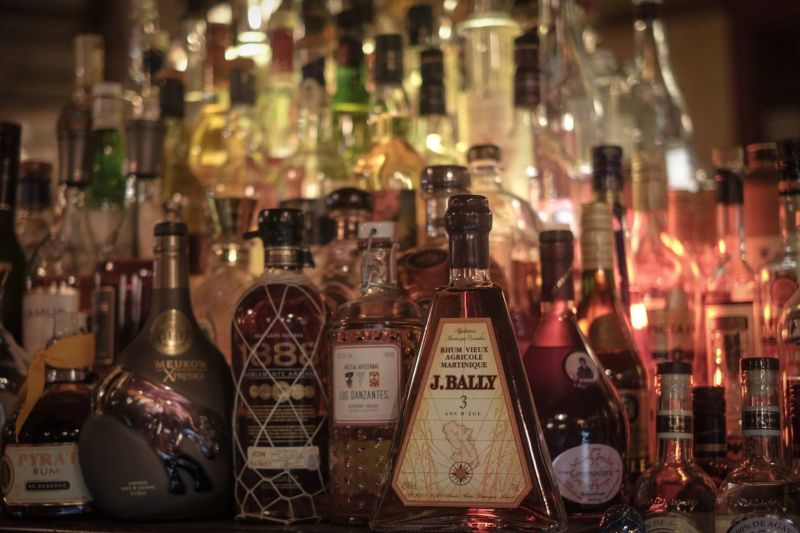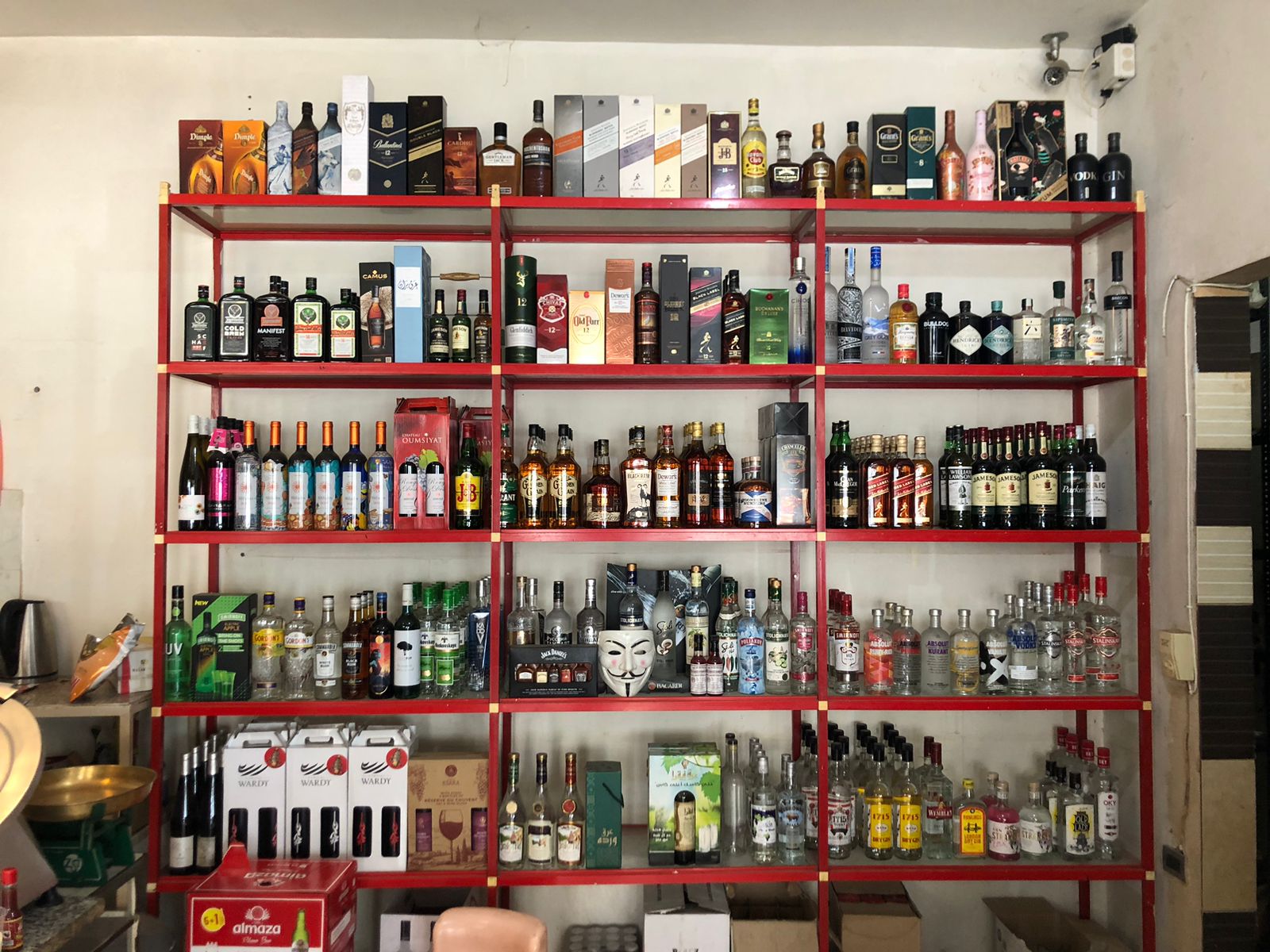
Liquor sales are said to slow down during Ramadan, but the reason isn't as clear cut as one might think. (Credit: João Sousa/L'Orient Today)
BEIRUT — Sitting in an empty liquor store in Beirut’s busy Hamra neighborhood, shop owner Mazen watches passersby steer clear of his door.
“My sales are lower during Ramadan. The people of the area who are fasting, and even the ones who aren’t, still respect that it's a holy month so they do not drink,” he explained.
Mazen estimates his sales are down more than 90 percent since the start of Ramadan.
He noted that the slump usually begins a few days before Ramadan begins and sales don’t rebound until after Eid al-Fitr. In the meantime, his store is mainly supported by non-Muslim and expatriate clientele.
The same is true on the outskirts of the coastal city of Saida, in the predominantly Christian town of Abra. Here, Ramadan has also taken its toll on alcohol sales at Elie’s minimart.
“Before we used to sell a lot of bottles, but now in Ramadan, I’ve not sold as much alcohol,” said Elie Mchantaf, noting that sales have declined to around half.
Mchantaf says his customer base is religiously mixed, but roughly 60 percent are from Saida.
“Whoever wants to drink can drink,” he says.
Lebanon’s two main beer distilleries confirmed there is a correlation between the holy month and the sale of alcohol.
Kassatly Beirut, which makes Beirut Beer, told L’Orient Today that their sales decline during Ramadan but sales of their sister company, Kassatly Chatura, go up due to an increased demand for Jallab, a syrupy fruit drink made from carob that is consumed during the holy month.
Communicating with L’Orient Today via email, Almaza Brewery said consumption of their beer dips by 20 percent to 30 percent during Ramadan. But the company said other factors also account for this, such as the weather and tourist flows.
 The liquor shelf at Elie Mchantaf's mini-mart on the outskirts of Saida, South Lebanon. (Credit: Mohamed El Chamaa/L'Orient Today)
The liquor shelf at Elie Mchantaf's mini-mart on the outskirts of Saida, South Lebanon. (Credit: Mohamed El Chamaa/L'Orient Today)
Lent
“There's more of a decrease in customers than in previous years because the Christians and Muslims both are fasting,” says Elie Gemayel, a bartender in the eastern part of Beirut.
This year, like last, Ramadan coincides with Lent. During this time, both Muslims and Christians fast for a certain number of days. For Muslims, this means refraining from eating or drinking from sunrise to sunset. For Eastern Christian denominations, this involves practicing veganism by not consuming animal products, and/or giving up something they are fond of, such as sweets or alcohol.
“The traffic lowers during Ramadan especially if you're working at a bar,” said Gemayel, adding that restaurants are also having trouble getting by, even ones that don’t serve alcohol. This predicament points to economic factors.
Economic crisis
Religious observance or not, Lebanon is still in the midst of one the worst financial crises in history.
Mazen, the liquor store owner, said foot traffic in Hamra was greater before the crisis.
“Now there are fewer people and you don’t come across them as much. Even the number of tourists is less than before,” he says. “Those were the ones we used to depend on to keep our sales up during Ramadan.”
Almaza added that the Ramadan slump is usually mitigated “if it coincides with high tourist season, whether in summer or winter.”
The crisis has also affected how liquor businesses advertise.
“In normal times, we used to advertise for Jallab during Ramadan and for beer for the rest of the year. But today we’re not spending anymore,” Nayef Kassatly, Kassastly's general manager, told L’Orient Today by phone.
Drinking at one's discretion
In the northern city of Tripoli, things are slightly different.
Wahib Zamaraghdis, the owner of Mike’s Bar in the city’s Mina district, said business does slow down a bit during the holy month, but his bar remains open.
“We’re in a mixed area, so we have clients who fast and others who don’t and those are the ones who come to our place.”
However, he said the slowed business is not to be blamed on Lent, Ramadan, or general piety, but rather on customer discretion.
“A person wouldn’t grab a drink during Ramadan, especially if they don’t want the others to know that they’re not fasting,” said Zamaraghdis.
Instead, potential customers would rather buy a drink from the supermarket and drink at home.
“I doubt they get affected much during Ramadan,” Zamaraghdis says of the mini-marts.
This was somewhat the case for Mchantaf in Abra. Despite the slump in sales, with the help of a moped delivery person, he sells alcohol to people at home, and even to areas outside his vicinity to places as far as Nabatieh, and parts of the Bekaa.
*Ali, who fasts and asked that his real name not be used, has a different take.
“Most of the time, you are invited for Iftar even though you may not be fasting, and they won’t serve a drink,” says Ali.
He adds that drinking is not easy on an empty stomach. “You won’t be able to drink since you haven’t eaten yet. So that’s why for me [drinking] becomes less.”
*Names have been changed for privacy.